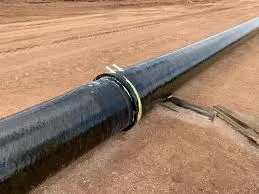
-
 Afrikaans
Afrikaans -
 Albanian
Albanian -
 Amharic
Amharic -
 Arabic
Arabic -
 Armenian
Armenian -
 Azerbaijani
Azerbaijani -
 Basque
Basque -
 Belarusian
Belarusian -
 Bengali
Bengali -
 Bosnian
Bosnian -
 Bulgarian
Bulgarian -
 Catalan
Catalan -
 Cebuano
Cebuano -
 China
China -
 China (Taiwan)
China (Taiwan) -
 Corsican
Corsican -
 Croatian
Croatian -
 Czech
Czech -
 Danish
Danish -
 Dutch
Dutch -
 English
English -
 Esperanto
Esperanto -
 Estonian
Estonian -
 Finnish
Finnish -
 French
French -
 Frisian
Frisian -
 Galician
Galician -
 Georgian
Georgian -
 German
German -
 Greek
Greek -
 Gujarati
Gujarati -
 Haitian Creole
Haitian Creole -
 hausa
hausa -
 hawaiian
hawaiian -
 Hebrew
Hebrew -
 Hindi
Hindi -
 Miao
Miao -
 Hungarian
Hungarian -
 Icelandic
Icelandic -
 igbo
igbo -
 Indonesian
Indonesian -
 irish
irish -
 Italian
Italian -
 Japanese
Japanese -
 Javanese
Javanese -
 Kannada
Kannada -
 kazakh
kazakh -
 Khmer
Khmer -
 Rwandese
Rwandese -
 Korean
Korean -
 Kurdish
Kurdish -
 Kyrgyz
Kyrgyz -
 Lao
Lao -
 Latin
Latin -
 Latvian
Latvian -
 Lithuanian
Lithuanian -
 Luxembourgish
Luxembourgish -
 Macedonian
Macedonian -
 Malgashi
Malgashi -
 Malay
Malay -
 Malayalam
Malayalam -
 Maltese
Maltese -
 Maori
Maori -
 Marathi
Marathi -
 Mongolian
Mongolian -
 Myanmar
Myanmar -
 Nepali
Nepali -
 Norwegian
Norwegian -
 Norwegian
Norwegian -
 Occitan
Occitan -
 Pashto
Pashto -
 Persian
Persian -
 Polish
Polish -
 Portuguese
Portuguese -
 Punjabi
Punjabi -
 Romanian
Romanian -
 Russian
Russian -
 Samoan
Samoan -
 Scottish Gaelic
Scottish Gaelic -
 Serbian
Serbian -
 Sesotho
Sesotho -
 Shona
Shona -
 Sindhi
Sindhi -
 Sinhala
Sinhala -
 Slovak
Slovak -
 Slovenian
Slovenian -
 Somali
Somali -
 Spanish
Spanish -
 Sundanese
Sundanese -
 Swahili
Swahili -
 Swedish
Swedish -
 Tagalog
Tagalog -
 Tajik
Tajik -
 Tamil
Tamil -
 Tatar
Tatar -
 Telugu
Telugu -
 Thai
Thai -
 Turkish
Turkish -
 Turkmen
Turkmen -
 Ukrainian
Ukrainian -
 Urdu
Urdu -
 Uighur
Uighur -
 Uzbek
Uzbek -
 Vietnamese
Vietnamese -
 Welsh
Welsh -
 Bantu
Bantu -
 Yiddish
Yiddish -
 Yoruba
Yoruba -
 Zulu
Zulu
fiberglass shell
The Versatility and Benefits of Fiberglass Shells
Fiberglass shells have become increasingly popular across various industries due to their unique properties and advantages. From automotive to marine applications, and even in architectural designs, fiberglass shells offer a range of benefits that make them a preferred choice for manufacturers and consumers alike.
What is Fiberglass?
Fiberglass, or glass-reinforced plastic (GRP), is a composite material made from a polymer matrix reinforced by glass fibers. The combination of these materials results in a lightweight yet incredibly strong product. The process of creating fiberglass involves weaving glass fibers into a mat, soaking it in a resin, and then curing it to form a durable shell.
Applications of Fiberglass Shells
1. Marine Industry One of the most common applications for fiberglass shells is in the construction of boats and other marine vessels. The buoyancy and corrosion resistance offered by fiberglass make it an ideal material for this environment. Fiberglass boats are lighter than their wooden counterparts, leading to better speed and fuel efficiency. Additionally, they require significantly less maintenance over their lifespan.
2. Automotive Sector In the automotive industry, fiberglass is extensively used for body panels, hoods, and other components. Vehicles manufactured with fiberglass shells benefit from reduced weight, leading to enhanced performance and fuel efficiency. Moreover, fiberglass can be molded into various shapes, allowing for innovative designs that traditional materials might not accommodate.
3. Architectural Uses Fiberglass shells have also found a place in architectural design. The material is often used for the creation of unique, eye-catching facades and roofing components. Its ability to be shaped into complex forms allows for more creativity in building designs. Additionally, fiberglass can provide insulation, reducing energy consumption in buildings.
4. Storage and Transport Fiberglass is also used to create storage tanks, containers, and even intricate sculptures. Its resistance to corrosion makes it suitable for storing chemicals and other hazardous materials without the risk of contamination.
fiberglass shell

Advantages of Fiberglass Shells
1. Durability One of the most significant benefits of fiberglass is its durability. Unlike materials such as wood or metal, fiberglass is resistant to rot, corrosion, and UV damage, significantly extending its lifespan.
2. Low Maintenance Fiberglass requires minimal maintenance compared to traditional materials. It does not need to be painted regularly, and cleaning is generally straightforward. A simple wash can restore its appearance, making it an attractive option for those seeking low upkeep.
3. Cost-Effectiveness While the initial costs of fiberglass products might be higher than some alternatives, the long-term savings in maintenance and replacement often make it the more economical choice. Its longevity and resistance to wear mean fewer replacements over time.
4. Environmental Impact With increasing emphasis on sustainability, fiberglass offers a relatively environmentally friendly option. It is often manufactured using recycled materials, and its longevity reduces the frequency of waste disposal associated with less durable products.
5. Flexibility and Lightweight Fiberglass can be molded into various shapes and sizes, offering flexibility in design. Its lightweight nature further adds to its popularity, especially in applications where weight is a critical factor, such as in the automotive and aerospace industries.
Conclusion
The versatility of fiberglass shells is evident in their wide range of applications and the numerous benefits they offer. From reducing weight in automotive designs to providing resilience in marine environments, fiberglass continues to be a material of choice. As industries seek innovative solutions that align with environmental standards and performance metrics, fiberglass stands out as a reliable, durable, and cost-effective option, paving the way for future advancements in technology and design. Whether shaping the future of boats, cars, or architectural wonders, fiberglass shells are redefining what is possible in material science.









